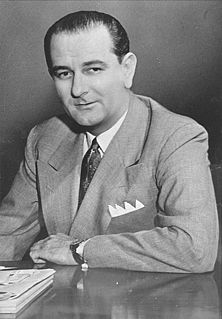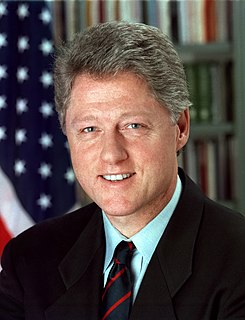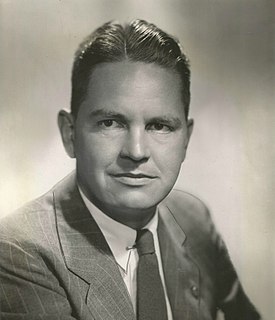
The United States Senate elections, 1978 in the middle of Democratic President Jimmy Carter's term. Thirteen seats changed hands between parties. The Democrats at first lost a net of two seats to the Republicans, and then one more in a special election. Democrats nevertheless retained a 58-41 majority.

The United States Senate elections of 1956 were elections for the United States Senate that coincided with the re-election of President Dwight D. Eisenhower. Although the Democrats gained two seats in regular elections, the Republicans gained back two seats in special elections, leaving the party balance of the chamber remained unchanged.

Arthur Jerard Weaver was an American politician in the U.S. state of Nebraska. A Republican, he served as the 22nd Governor of Nebraska.

The 1996 Democratic presidential primaries were the selection process by which voters of the Democratic Party chose its nominee for President of the United States in the 1996 U.S. presidential election. Incumbent President Bill Clinton was again selected as the nominee through a series of primary elections and caucuses culminating in the 1996 Democratic National Convention held from August 26 to August 29, 1996, in Chicago, Illinois.

The 1978 election for Washington, D.C. mayor was the second mayoral election under DC Home Rule. The Democratic primary election took place on Tuesday, September 12, with At-Large Councilman Marion Barry defeating incumbent mayor Walter E. Washington and Council Chair Sterling Tucker to become the Democratic nominee for Mayor. Barry defeated Republican nominee Arthur Fletcher and two marginal candidates in the general election on November 7, 1978.
An election for mayor of the City of Lancaster in Pennsylvania was held on November 3, 2009. Incumbent Mayor Rick Gray, a Democrat, defeated challenger Charles W. "Charlie" Smithgall, a Republican by 313 votes, out of 7,261 cast.

The Mayoral election of 1985 in Pittsburgh, Pennsylvania was held on Tuesday, November 5, 1985. The incumbent mayor, Richard Caliguiri of the Democratic Party chose to run for his third term.

The 2013 Pittsburgh mayoral election took place on November 5, 2013. Democrat Bill Peduto was elected the 60th Mayor of Pittsburgh, Pennsylvania. The primary election was held on May 21, 2013. Incumbent Democratic Mayor Luke Ravenstahl, although eligible for a second full term, did not seek reelection as Mayor of Pittsburgh.
Paul Kenneth Peterson was a lawyer, insurance broker and Republican politician who served as mayor of Minneapolis from 1957 to 1961.
The 2014 United States House of Representatives elections in North Carolina were held on Tuesday, November 4, 2014 to elect the 13 U.S. Representatives from the state of North Carolina, one from each of the state's 13 congressional districts. The elections coincided with other elections to the United States Senate and House of Representatives and various state and local elections, including an election to the U.S. Senate.

The 1946 Massachusetts gubernatorial election was held on November 5, 1946. Republican Robert F. Bradford defeated Democratic incumbent Maurice J. Tobin, Socialist Labor candidate Horace Hillis, and Prohibition candidate Guy S. Williams.

The Chicago mayoral election of 1987 was first the primary election on February 24, 1987 followed by the general election on April 7, 1987. The election saw the re-election of Chicago, Illinois' first African-American mayor, Harold Washington. Ed Vrdolyak, the leader of the Vrdolyak 29, unsuccessfully opposed him, running on Solidarity ticket. Former mayor Jane Byrne, who served from 1979 until 1983 unsuccessfully challenged Washington in the Democratic primary.

The Chicago mayoral election of 1983 was first the primary on February 22, 1983 which was followed by the general on April 12, 1983. The election saw the electing of Chicago, Illinois' first African-American mayor, Harold Washington. Incumbent Mayor Jane Byrne, who had served since April 1979 had lost renomination in the Democratic primary in a three–way race between herself, then–Congressman Washington, and then–State's Attorney Richard M. Daley in February 1983. Washington would face off against Republican nominee Benard Epton, winning with a 3.7% lead over Epton in the general election.

The New Jersey gubernatorial election of 1985 was a race for Governor of New Jersey held on November 5, 1985. Incumbent Republican Governor Thomas Kean sought reelection for a second term following his 1797-vote win in the 1981 election. Kean's 40-point landslide victory against the Democratic candidate, Essex County Executive Peter Shapiro, is the largest plurality in terms of percentage and raw votes in all modern New Jersey gubernatorial elections. Kean won 564 out of 567 municipalities and his coattails led the Republicans to win the General Assembly with a 50-seat majority.

The 1928 United States Senate election in Minnesota took place on November 6, 1928. Incumbent Farmer-Labor U.S. Senator Henrik Shipstead defeated his Republican challenger, former St. Paul mayor Arthur E. Nelson, to win a second term.

The 1931 Chicago mayoral election was held to elect the Mayor of Chicago. Former Cook County Board of Commissioners President Anton Cermak defeated incumbent mayor William Hale Thompson by a 17 point margin of victory.

In the Chicago mayoral election of 1967 Richard J. Daley was elected to a fourth term as mayor. His main opponent was Republican nominee John L. Warner by a landslide 48% margin.

In the Chicago mayoral election of 1939 incumbent Edward J. Kelly was reelected by a double-digit margin of victory.

In the Chicago mayoral election of 1923 Democrat William E. Dever defeated Republican Arthur C. Lueder and Socialist William A. Cunnea. Elections were held on April 3, the same day as aldermanic runoffs.
















